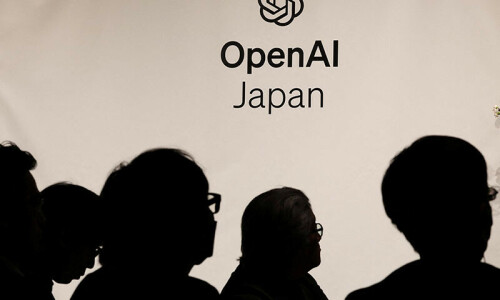
ROLLING Blackouts is subtitled Dispatches from Turkey, Syria, and Iraq, but if you are expecting this to be primarily concerned about people from those countries, you will be disappointed. Sarah Glidden’s 300-page graphic novel, whose heft seems to promise an in-depth journalistic look at contemporary trouble spots, a la Joe Sacco’s Palestine or Safe Area Goražde, is in fact less concerned with the victims of war and displacement than with the plight of the American journalists who are out to get the story. It’s an odd dynamic, and ultimately an unsatisfying one.
Glidden herself seems to recognise the problem, which is probably why her opening page features a headscarved, presumably Muslim woman directly addressing the reader: “I never liked you… I not like your government. I not like… EVERYBODY.” The opening, which is itself problematic in its presentation of a belligerent ‘other’ haranguing the hapless reader, at least features someone speaking in her own words. This, it turns out, will be one of the few times such a voice is heard in this book, which presumably is why Glidden uses it to hook the reader (and returns to it 285 pages later in an extended version of the same scene).
The numbers tell the story here: out of 300 pages of text and image, only about 135 feature the voices of people in Syria and Iraq — those “dispatches” mentioned in the title. (Yes, I counted.) What, then, is filling those other 165 pages?
Journalism takes an illustrative turn
Quite a lot, actually, but much of it is only marginally interesting. Glidden herself is not a journalist; she is travelling in the region with friends of hers, a pair of Seattle-based independent reporters named Sarah and Alex. These two have vague ideas of hunting up stories of refugees and internally displaced people who are living through the after-effects of the Gulf War. There is a fair bit of backstory about Sarah and Alex and their journalistic struggles; there is also time spent watching them struggle with the logistics of putting a story together, making contacts in various cities, and deciding on what angle to take for a given piece. None of this is terribly compelling. Not in relation to the civilians on the ground, anyway, and the hell they’ve lived through, but Glidden documents the Americans’ struggle as much as, or more than, the Iraqis’, which would be ironic if it weren’t so infuriating.

Most problematic, though, is the fourth member of the travelling band: Dan, an Iraq war veteran from Seattle who is returning to the region for… for what, is never really made clear. Journalist Sarah has some idea of a story built around Dan confronting his actions in the place where he was previously a combatant, but nothing much comes of that. Dan spends the bulk of this book acting as an American war apologist, and the fact that roughly 100 pages are spent in the Kurdish areas of Turkey and Iraq, where the civilian population is portrayed as grateful for the American campaign, does little to change his views. Late in the book, Dan undergoes what might be seen as a crisis of conscience — gosh, he even acknowledges that murdering hundreds of thousands of people might have been a bad thing! — but for readers for whom the criminality of the Iraq invasion is already obvious, this revelation will be too little, too late.
Ultimately, this book is about a handful of Americans viewing the mess that their country made, rather than about the people who were caught up in that mess. There are exceptions, and some of them are powerful, like glimpses of a stronger book that might have been. Sam is an Iraqi refugee who made his way to the United States in the late 1990s with his family, settled in and even changed his name, only to get enmeshed in a web of post-9/11 allegations that see him deported to Syria. His story forms a backbone to the book that Glidden returns to periodically. It’s not enough to offset soldier Dan’s recurring story, but it helps.
Glidden herself is not a journalist; she is travelling in the region with friends of hers who have vague ideas of hunting up stories of refugees and internally displaced people living through the after-effects of the Gulf War.
Finally, a graphic novel derives much of its power from its visuals, and while Glidden’s watercolour paintings of the countryside are often evocative, they are sadly much less common than her simple face shots. This is the comic book equivalent of a talking-head documentary, and as such it is visually static. Pages are broken up into simple grids of eight or nine panels, with conversations playing out back and forth across an entire page. Compositionally, the repetition is dull, and the effect is to flatten the movement and render it lifeless.
Rolling Blackouts might be of interest to people with a curiosity as to how journalism gets produced, and who don’t mind that the countries mentioned in the subtitle are often little more than painted backdrops for these Americans to host their conversations. Readers with a strong desire to explore the effects of war and the subsequent power vacuum left when the troops leave, however, would be better off searching elsewhere.
The reviewer is the author of five novels, including The Preservationist and Fallen.
Rolling Blackouts: Dispatches from Turkey, Syria, and Iraq
(GRAPHIC NOVEL)
By Sarah Glidden
Drawn & Quarterly Publications, US
ISBN: 978-1770462557
304pp.
Published in Dawn, Books & Authors, January 8th, 2017













































Dear visitor, the comments section is undergoing an overhaul and will return soon.